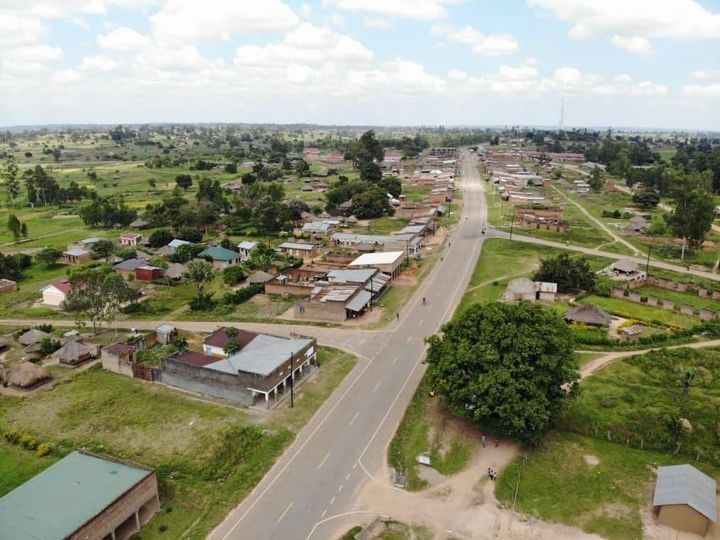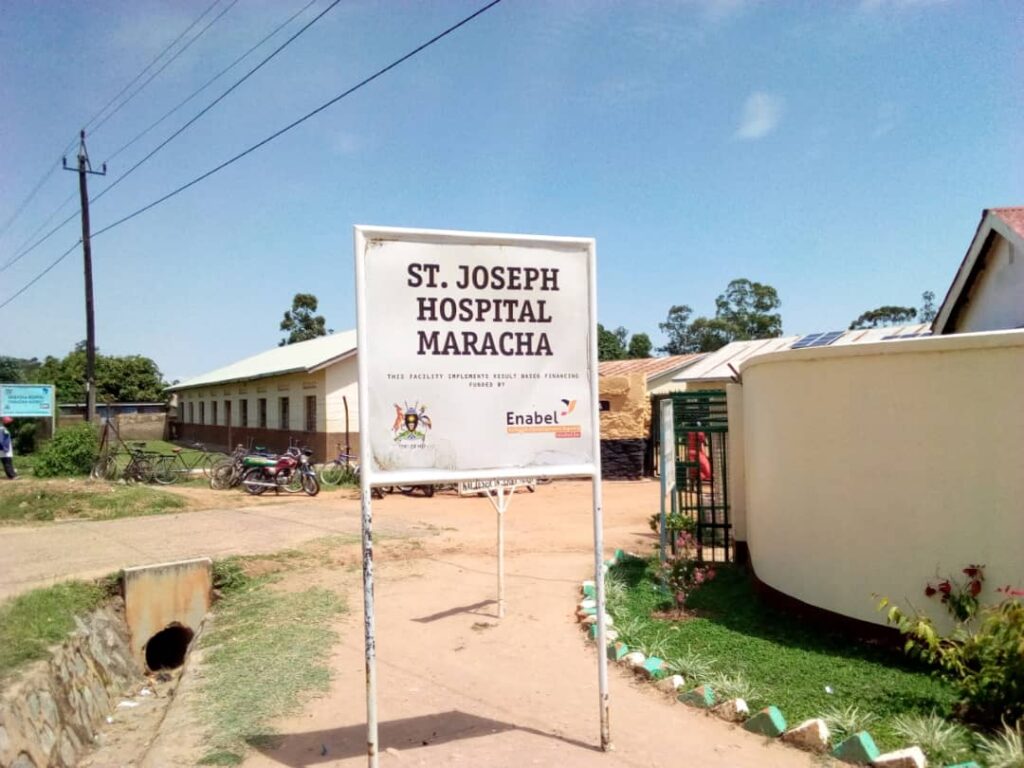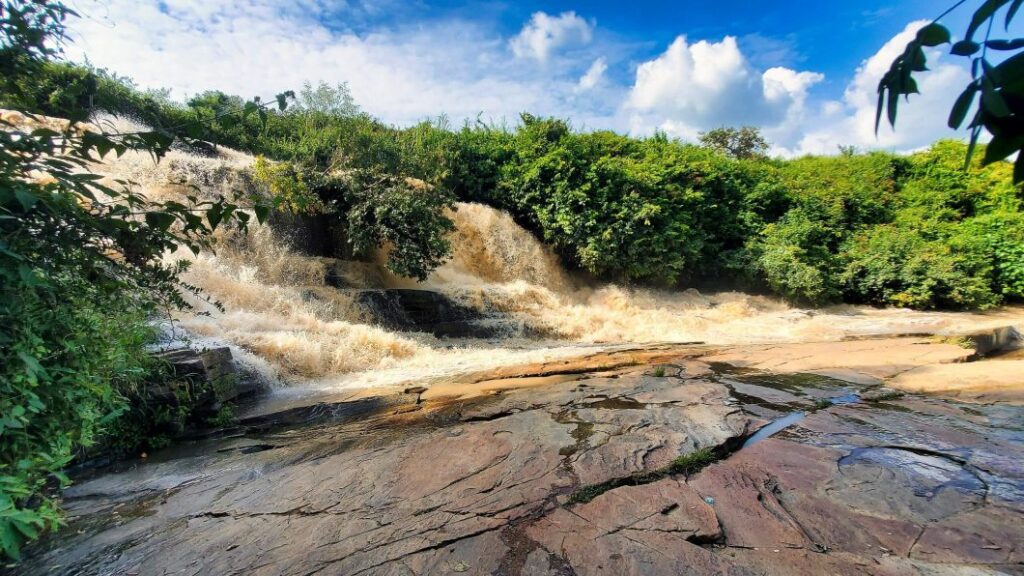Maracha District

Maracha District Head Quarters
Created in the financial year 2009/2010, Maracha District started effective operations on 1st July 2010/2011. Its administrative headquarters and commercial town is in Maracha Town Council, 24 miles north of Arua Town along the main road to Koboko district-South Sudan.
Geography:
- Location: Maracha District is in the northwestern part of Uganda, within the West Nile sub-region. Koboko District borders it to the north, Yumbe District to the east, Arua District to the south, and the Democratic Republic of the Congo to the west.
- Co-ordinates: Latitude:3.28750 and Longitude:30.94000.
- Topography: The district features rolling hills, plains, and river valleys, with fertile soils suitable for agriculture. The primary rivers include the Kochi and Enyau rivers.
Demographics:
- Population: As of the latest estimates, Maracha District has approximately 186,134 people.
- Ethnic Composition: The district is predominantly inhabited by the Lugbara people. Other ethnic groups include the Kakwa, Madi, and Alur.
- Languages: The primary languages spoken are Lugbara and English, with Swahili and other local languages also commonly used.
Economy:
- Agriculture: Subsistence agriculture is the backbone of Maracha’s economy. Major crops include cassava, maize, beans, millet, sorghum, groundnuts, and sweet potatoes. The district also grows cash crops like tobacco and simsim (sesame).
- Livestock Farming: Residents engage in livestock farming, keeping cattle, goats, sheep, and poultry, which are essential for both domestic use and trade.
- Trade: Maracha benefits from its proximity to the Democratic Republic of the Congo, facilitating cross-border trade. The district has several local markets where agricultural products and livestock are traded.
- Small-Scale Industries: Some small-scale industries, including agro-processing and craft-making, contribute to the local economy.
Infrastructure:
- Transport: The district has a network of roads connecting it to neighboring districts and countries. However, many roads need improvement, especially during the rainy season. Key roads include the one linking Maracha to Arua and Koboko.
- Utilities:
- Electricity: The availability of electricity is constrained, particularly in rural regions where the primary sources are solar energy and generators.
- Water Supply: Water is obtained from boreholes, safeguarded springs, and rivers. Efforts are ongoing to improve access to clean water by constructing more boreholes and water supply systems.
- Sanitation: Although progress is being made in the development of sanitation facilities, many areas still require better infrastructure and services to meet their needs.

Education:
- Schools: Maracha District has numerous primary and secondary schools, both government and privately owned. Key institutions include Maracha Secondary School and several vocational training centers.
- Challenges: There is a pressing need for improved infrastructure within the education sector, alongside a shortage of trained teachers, limited access to learning materials, and dropout rates.
Health:
- Healthcare Facilities: Health services in Maracha are provided by Maracha Hospital, several Health Centre IIIs and IIs, and private clinics.
- Challenges: The healthcare system is confronted with issues stemming from inadequate medical supplies, a scarcity of health personnel, and restricted healthcare infrastructure.

Cultural and Social Life:
- Cultural Heritage: The Lugbara culture is rich in traditions, including music, dance, and festivals. Cultural practices are integral to social life.
- Religion: The district is characterized by a diverse array of religious practices, primarily featuring Christianity, including both Catholic and Protestant denominations, alongside Islam as the predominant faith. Religious events and activities play a vital role in shaping the community’s social structure and cohesion.
- Social Amenities: Maracha Town, the district’s administrative center, has various social amenities, including markets, sports facilities, and recreational centers. Community life is centered on the rhythm of market days, the significance of religious practices, and the vibrancy of cultural events.

Urban Development:
- Governance: The district is governed by a district council headed by a Local Council V (LCV) chairman. The commission is tasked with the oversight of local governance, the development of plans, and the execution of service delivery.
- Challenges: The district is grappling with issues surrounding infrastructure development, public service provision, and economic advancement. Ongoing efforts aim to upgrade roads, improve healthcare access, enhance educational opportunities, and ensure a reliable water supply.
Development Prospects:
- Economic Growth: There exists considerable potential for economic advancement within agriculture, trade, and small-scale industries. Strengthening infrastructure and services can play a crucial role in boosting these economic endeavors.
- Investment Opportunities: Opportunities exist in sectors such as agriculture, agro-processing, trade, and services. Investment in infrastructure development can also spur growth.
- Community Initiatives: Local and international organizations support various development initiatives to improve livelihoods, education, healthcare, and community resilience.
Maracha District, with its strategic location and rich cultural heritage, plays a vital role in the West Nile sub-region. Efforts in the district are centered around the improvement of infrastructure, the enhancement of public services, and the stimulation of economic growth.
I have learnt some new things about my district. Thank you so much